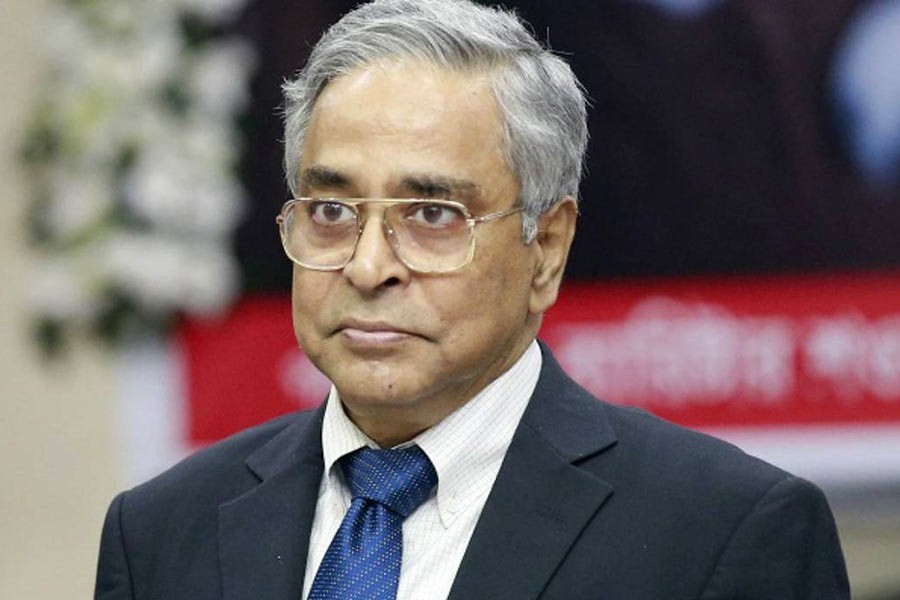The judiciary has ‘no other option’ but to use virtual courts, says Chief Justice Syed Mahmud Hossain.
Virtual courts are needed to address the backlog in the court cases, or even the traffic jams on the streets, the chief justice said.
Quoting the vice president of India who said ‘the court is not a specific building but a service,’ Hossain said the judiciary should be available 24 hours a day, like medical services, reports bdnews24.com.
He made the remark on Wednesday during an appeal hearing in the Chuadanga Jhoru-Mokim case, the convicts in which were executed four years ago.
Lawyer Asif Hasan, who sought to appeal the case, sought the drafting of a policy for the coordination of lawyers and the Supreme Court divisions about appeals by convicts, death references and the execution of death sentences.
“Nothing can be done in this case now. Our petition is obsolete. But I want a guideline for the sake of the people,” he said.
Justice Muhammad Imman Ali then said that if court proceedings were computerised, a convict’s execution would not have been carried out before their appeal was settled.
“But it’s you (lawyers) who don’t let us do anything. The learned advocates won’t let us computerise as they like to file a case with the court of their choice,” he said.
The Supreme Court will resume the in-person sessions in December, the chief justice noted at this point.
“A virtual court can work twice as fast. For example, if the attorney general was called here, it would take him 15 minutes to get here from the annexed building. In a virtual court, he could have just logged in from anywhere,” the chief justice said.
“In addition, most lawyers in the Appellate Division are quite elderly. Most of the famous ones are over 70. They attend the court from home and take no breaks. Barrister Amirul Islam attends court sessions from his bedroom because his daughter doesn’t allow him to come to the chamber. I’ll reopen the physical court in December because all of you are so fond of it.”
He said internet connections will ‘improve’ as the country ‘gets digitised’ when a lawyer drew his attention to the issue.
The court dismissed the regular appeal on Jhoru and Mokim and issued a guideline on the matter.


